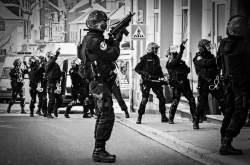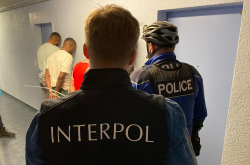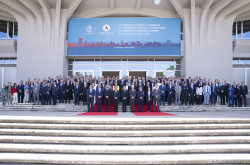With the illicit trafficking of cultural property a serious transnational crime affecting all regions, more than 90 national and international experts from 23 countries in Europe, the Middle East and United States met in Wiesbaden at the European Working Meeting on Art Crime and Illicit trafficking in Stolen Cultural Property.
Hosted at the headquarters of the German Federal Criminal Police (BKA), the three-day (10 – 12 September) meeting was also attended by representatives from the Council of the European Union, EUROPOL, ICCROM, OSCE, UNESCO, UNITAD, UNODC, WCO and the Monitoring Team of the UN Security Council (UN SC).
With the BKA’s Stefan Michel (Criminal Director, Department of Serious and Organized Crime) highlighting the importance of addressing the continuing looting of cultural goods in crisis regions, participants discussed the involvement of terrorist groups in the looting and smuggling of cultural items, especially from conflict zones, with particular focus at the meeting given to follow-up actions relating to UN SC Resolutions 2199/2015 and 2347/2017.

These call for countries to take appropriate steps to prevent the trade in stolen cultural property, and specifically the use of INTERPOL’s global policing capabilities, such as its Stolen Works of Art database.
In this respect, experts from Iraq, Syria and Yemen provided updates on cultural heritage crimes in their respective countries.
With police operations both at the regional and global level a fundamental way to tackle crimes related to cultural property, INTERPOL leads and organizes major law enforcement operations – such as the Pandora and joint police-customs Athena operations. It also provides the only international police database containing information on stolen works of art.
Corrado Catesi, Coordinator of INTERPOL’s Works of Art unit, explained that no country was immune to cultural theft and trade: “Our collective focus must be to protect heritage from exploitation and destruction. Establishing specialized police units with an operational stolen works of art database should be at the heart of an effective national strategy.”

INTERPOL also collects intelligence and analyzes the latest cultural property crime trends to assist its member countries.
During the event, INTERPOL officers presented the latest data its Works of Art unit gathered on crimes committed in 2018. That year, INTERPOL reported worldwide more than 8,500 offences, with some 91,000 cultural objects stolen and almost 223,000 objects seized by law enforcement agencies.

The issues of money laundering and fake cultural items, and the importance of protecting cultural property after natural disasters and armed conflicts, also topped the agenda at the meeting.











